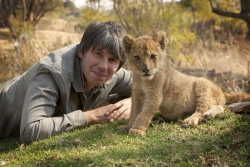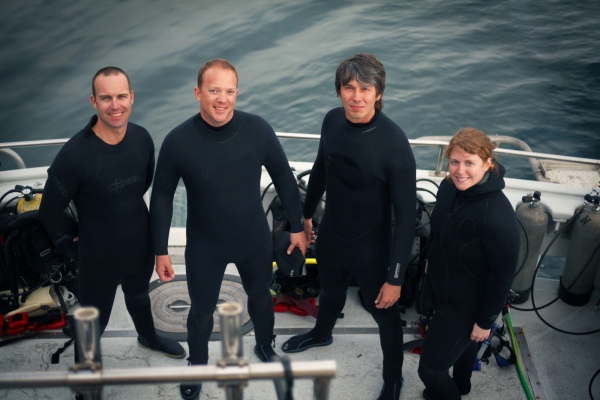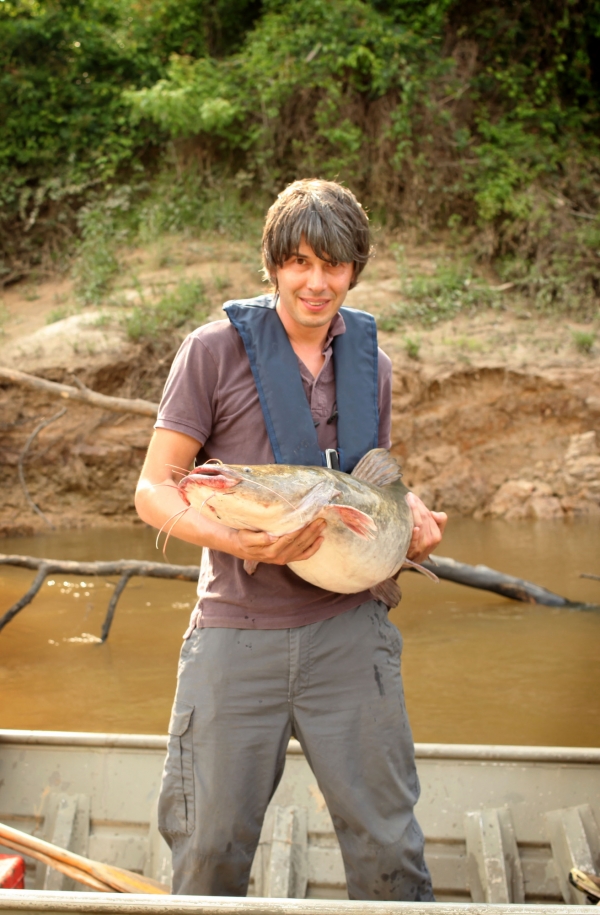Wonders of Life
 Michael Lachmann is one of 4 directors on 'Wonders of Life', presented by Prof. Brian Cox.
Michael Lachmann is one of 4 directors on 'Wonders of Life', presented by Prof. Brian Cox.
We asked Michael about making this landmark science series as well as his previous work on Wonders of the Solar System and Wonders of the Universe.
Michael works in the BBC science unit and is a member of Directors UK & thecallsheet.co.uk. Members of thecallsheet can view his profile here.
What can we expect from Wonders of Life?
Wonders of Life is a physicists take on biology. So we see Brian Cox tackling questions like what is life? How evolution works and how living things detect the world around them. But the point of the series is to show that a scientific explanation for the existence of life on this planet can be just as fascinating as other older creation stories. I’d hope that the audience will come away with a real sense of – for want of a better word – wonder.
Like the previous Wonders series it’s filmed in beautiful locations around the world. But this time we’re moving towards natural history territory - so there are more animals, and less standing on mountains staring into the middle distance.
Where do you start on a project called ‘Wonders of Life’? Can the subject matter be overwhelming?
When you take as your subject matter the Universe, or all life, there’s obviously a lot of material to be working with. But there is several months of development and pre-production on each series during which we identify the themes we want to pursue. That’s relatively straight forward, the hard part is then finding the right stories that will take the science and turn into a compelling television.
You shot the series all over the world, can you tell us about some of the more challenging destinations you filmed in?
I had it lucky on this series – each episode was shot in just one or two countries – and my programme was based in entirely in the US, where you’re never that far from air conditioning, a decent bar and a comfy hotel. So although we shot in the heat of desert and the insect-infected swamps of the Mississippi and Everglades it was probably the most luxurious shoot I’ve ever been on
The other programmes in the Philippines and Borneo, Australia and South Africa and Madagascar will claim they had it harder. But none of them sound that bad do they?
Do you have a favourite moment from the current series?
My favourite sequence is an encounter with an octopus off the coast of Florida. Most of the octopuses we found were pretty shy and stayed in their holes, but just one was curious enough to come out of its hole and go nose to nose, hand to tentacle with Brian. They are amazing creatures – completely different to us – not surprisingly given that they’re more closely related to slugs and snails than us – but when you look them in the eye there’s a real connection, you can sense that there’s a real intelligence about them. It’s a great moment.
But that’s from my programme – if you were to ask the other directors I’m sure they’d all nominate something else form their own shows.
You’ve directed on all three of the ‘Wonders’ series with Prof. Brian Cox. Can you describe the collaborative process when first approaching the subjects?
Not easily – it’s a not a fixed process and can vary from programme to programme. But yes, it is a collaboration between the production teams and Brian (and our scientific consultants if its field he’s not expert in – as is the case with biology) that goes on from pre-production, through filming and to the end of editing.
It’s a constant balancing act to make sure we get the amount and level of science right while maintaining the spectacle and pace that give the programmes their wider appeal. We want the programmes to be scientifically meaningful – but equally we don’t want them to just be illustrated lectures, they have to stand up as bits of primetime television.
How important is the sound and music to a series like Wonders?
Very – we spend a lot of time finding the right tone and pallet of music to match each show – and then have each individually scored. But I don’t think it’s unusually so for these series. Audio is a vital part of every programme. We’re lucky enough to be able to have specially composed music but I don’t think the basic principals of finding the music to match the story is any different to any other programme.
Several scientists making television reference Carl Sagan as an influence. What did he mean to you?
Brian Cox always cites Sagan as his great inspiration, but he passed me by completely. I have some vague memories of Cosmos from when I was a kid, but I can’t remember being impressed.
I only had eyes for David Attenborough. Life on Earth was what did it for me, as an seven year old I found it completely captivating. Still do.
Going back to the start of the career. What did you study to get to where you are today and how did you get started in TV?
I did a degree in zoology and then a masters in Science Communication at Imperial College. At the time, in the mid-90s, it was the only course of its type but now there are a few that will equip science graduates with the skills they need for a career in the media.
What advice would you give to your younger self?
I suppose the toughest bit of my career and I think for a lot of people, was making the leap from researching and APing to directing. They are such different jobs and it’s so difficult to persuade people that you have the skills to direct and to trust you with a whole programme. So I guess I’d tell younger me to be better prepared for that. ‘Make films – as many as you can, about anything – but films that say look, I made this, I can direct, give me the job.’
What has been your most memorable moment at work?
Lots to choose from, but it’s pretty hard to beat filming in Iceland. Geysers and ice caves and standing on icebergs in glacial lagoons. It’s magical country.
What do you do to relax?
The usual – hang out with my family, go rock-climbing with the kids, go on holiday. And if there’s any cricket on offer I’ll watch or listen to that. I’ll even listen to the cricket on the radio while we’re filming – which infuriates some people, but I find it puts me in exactly the right state of mind.
Is there anyone you would like to work with that you haven’t already?
David Attenborough.
And I like slightly eccentric, enthusiastic experts. Mary Beard would be great to work with, I think.
thecallsheet.co.uk is a members only network for professionals working in Film and TV in the UK. With over 1800 members and a database of over 39,000 productions, people and companies, we make it easy to find the best in the industry.
Click to register for your free account > Register for thecallsheet.co.uk

